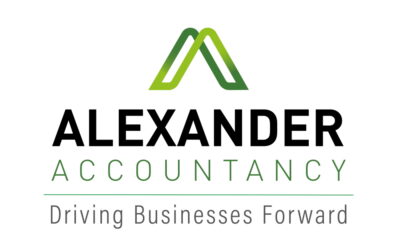
27th February 2024 Posted by - Alexander Accountancy
Limited Company vs Sole Trader
When starting a business, or indeed as an established business, choosing the most suitable legal structure for your business is an important thing to consider. Two popular options are operating as a sole trader or forming a limited company. Each of these options comes with its own set of pros and cons, especially when it comes to tax.
Sole trader:
Pros:
- Less administration: Operating as a sole trader is straightforward and involves minimal paperwork. You have no need to register with Companies House either. So, this is an attractive option if you are looking to start a small business quickly and want to keep your administrative work to a minimum.
- Tax reporting is simpler: Tax reporting is relatively simple for sole traders. Income tax and National Insurance contributions are calculated based on the profits your business makes. The process is usually less complex than if you were dealing with company tax.
Cons:
- Unlimited liability: Perhaps the most significant drawback of operating as a sole trader is that there is no legal distinction between the business and you as an owner. This means you are personally liable for any debts or legal claims against the business and means that your personal assets could be at risk.
- Tax disadvantages: While the simplicity of tax reporting is a pro, it can also be a con in some cases. Sole traders may miss out on certain tax advantages available to limited companies, for instance dividend payments and more flexible salary arrangements.
Limited company
Pros:
- Limited liability: One of the most significant advantages of forming a limited company is that your business and personal assets can be separated. Owning shares in a limited company means that your liability is limited to the amount invested in the company, and this can provide a layer of protection for your personal assets.
- Tax Efficiency: Limited companies often benefit from more tax-efficient structures. For example, as an owner, you can pay yourself through a combination of salary and dividends, which may result in lower overall tax liabilities compared to sole traders, who pay income tax and national insurance on all profits.
Cons:
- Administrative Burden: Limited companies are subject to more regulatory requirements and administrative tasks. This includes filing annual accounts, maintaining company records, and complying with legal obligations set out by Companies House.
- Tax is more complex: While limited companies can enjoy tax advantages, navigating all the rules that relate to companies can be complex. There is usually more work to do when it comes to withdrawing money from the company, for instance, you may need to set up and run a payroll to draw a salary, or to document dividend payments.
In conclusion, deciding whether to operate as a sole trader or a limited company involves careful consideration of various factors, including the tax implications. Sole traders benefit from simplicity but face unlimited liability and potential tax disadvantages. On the other hand, limited companies offer limited liability and potential tax efficiency but come with a greater administrative burden and complexity.
If you are considering which of these options is best for you and would like to know more about what is involved or want to know how the tax costs of being a sole trader or a limited company compare, please feel free to contact us. We have helped many businesses decide on their legal structure and would be happy to help you!
Email in**@al*******************.uk
Call, 01283 743851
Do you know someone who is thinking about starting a business? Please share this article with them by clicking on the share buttons below.
